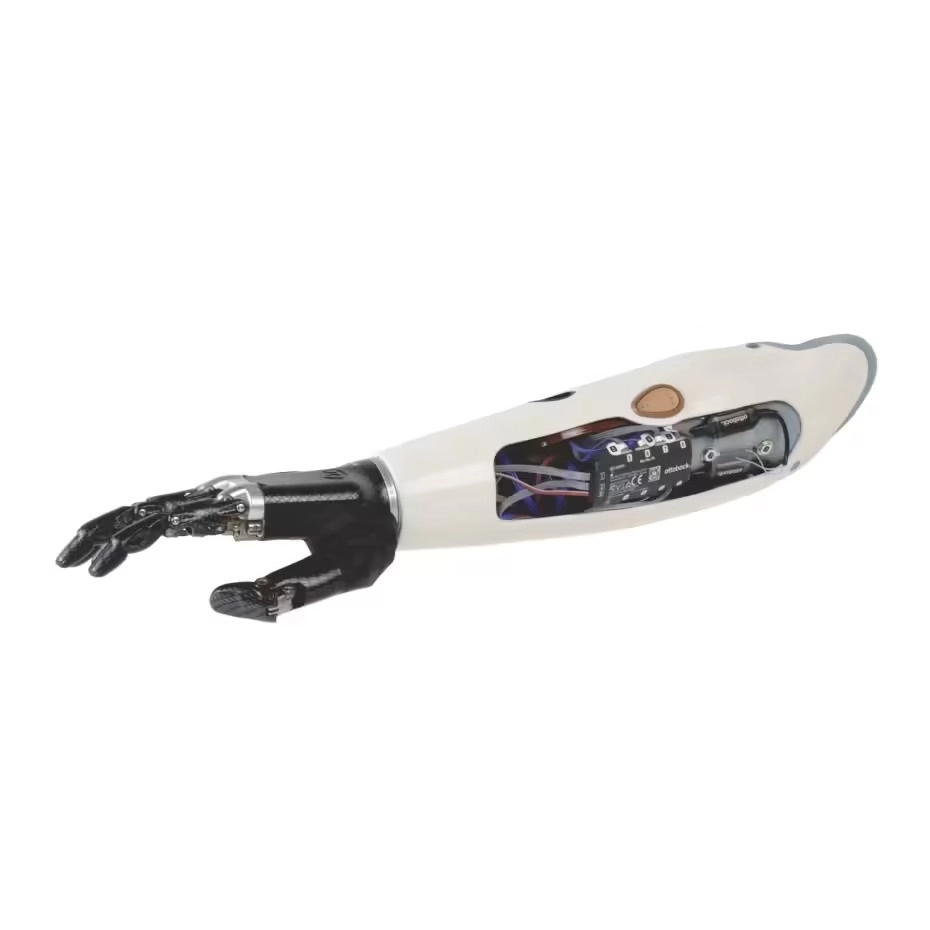Product Overview
The Myo Plus TR (Transradial) represents a fundamental shift in prosthetic control technology by using advanced pattern recognition to interpret the unique muscle signals that remain in the residual limb. Rather than relying on traditional two-channel switching systems, this intelligent control unit learns how each user's muscles activate when they imagine different hand movements — opening, closing, or rotating — and translates these individual patterns directly into corresponding prosthetic actions. The accompanying Myo Plus app serves as a real-time interface, allowing users to visualize their muscle activity and customize settings independently, making the prosthesis truly adaptable to evolving needs and capabilities.
Features and Benefits
- Machine learning adaptation: System continuously learns and refines recognition of your unique muscle movement patterns, improving accuracy and responsiveness over time as you use the prosthesis.
- Eliminates switching signals: Unlike conventional two-channel systems requiring CoCo or OpenOpen commands, movements flow naturally without interrupting your focus or requiring memorized sequences.
- Intuitive mental control: Leverages the brain's retained hand map after amputation — simply imagine the movement you want, and the prosthesis responds using the natural muscle activation patterns that thought creates.
- User-customizable grips: Add new grip patterns yourself through the app without returning to the clinic, adapting your prosthesis to new activities or refining existing movements as your skills develop.
- Real-time visual feedback: Myo Plus app displays muscle activity through an interactive spiderplot, providing immediate insight into signal quality and helping you optimize muscle control techniques.
- Comprehensive terminal device compatibility: Works seamlessly with bebionic hands (via digital control interface) and all MyoBock system hands, plus compatible with Electric Greifers for task-specific applications.
- Supports active and passive rotation: Accommodates various wrist rotation strategies based on your functional needs and terminal device selection, maximizing versatility across activities.
- Independent configuration control: Make adjustments to sensitivity, grip selection, and pattern assignments yourself using the mobile app, reducing dependence on clinic visits for routine modifications.
- Quality assessment tools: Myo cuff evaluation feature helps determine existing movement pattern quality, guiding training focus and identifying opportunities for control improvement.
- Fluid transition between functions: Switch between different grips and movements smoothly without the cognitive load and time delays associated with traditional switching protocols.
- Personalized learning process: Records your specific movement patterns during initial training, creating a control profile that matches your natural muscle activation rather than forcing you to adapt to preset patterns.
- Forearm-specific design: Optimized for transradial applications where sufficient muscle tissue remains to generate distinguishable patterns for multiple functions.
- Continuous improvement capability: Enhance control accuracy anytime by adding supplementary training recordings during everyday activities, strengthening the system's recognition of frequently used movements.
- Reduced cognitive demand: Natural pattern-based control allows you to focus attention on task execution rather than prosthesis operation, decreasing mental fatigue during extended use.
- Clinical programming foundation: Initial setup by a prosthetist establishes baseline patterns, while ongoing user refinement through the app ensures optimal performance matching your evolving capabilities.

.svg)
.svg)



